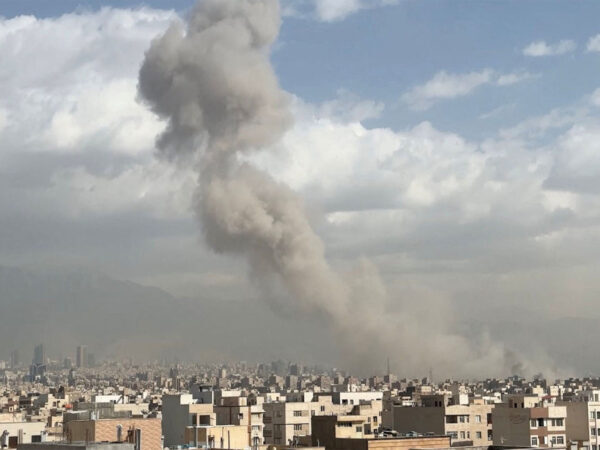
French Anti-Radicalism Bill Decried By Pakistan President
In remarks that may worsen the already-strained ties between Islamabad and Paris, Pakistan President Arif Alvi on Sunday asked the political leadership of France “not to entrench the discriminatory attitudes against Muslims into laws”, warning that such steps would lead to serious repercussions in the shape of hatred and conflict.
The president’s statement came in reference to an anti-radicalism bill passed by the French parliament’s lower house on Tuesday with an overwhelming majority that would strengthen oversight of mosques, Radio Pakistan tweeted.
“You [France] need to bring people together and not to stamp a religion in a certain manner to create disharmony and bias,” Alvi told an international conference on religious freedom and minorities rights, according to The Express Tribune.
Alvi also stated that the French legislation was not in line with the United Nations Charter and contradicted the spirit of social harmony that Europe previously instilled in its society.
“Let there not be a retrogressive step for situations which arise out of animosity and for situations which are carried forward by the people who do not know about the real Islam,” he said. He warned that such a move would ultimately end up in a terrible scenario of hatred and hostility, The Express Tribune reported.
To label the entire religion in a different manner and to start taking precautions against an entire community sparks fears that will have very bad repercussions in the next 10 years, if not now, the Pakistan president said.
The Bill titled: “Supporting respect for the principles of the Republic” was passed by the French lower house on Tuesday. It aims to strengthen oversight of mosques, schools and sports clubs to safeguard France from radical Islamists and to promote respect for French values.
The relations between France and Pakistan deteriorated last year after Pakistani leadership attacked the French government and President Emmanuel Macron for not condemning Prophet Muhammed’s caricatures.
Last month, French President Emmanuel Macron’s top advisor, Emmanuel Bonne said that the relations between France and Pakistan are at a ‘historic low’ amid a spat of terror attacks in the former nation.
“During this crisis, after the campaign against us, our relations with Pakistan probably are at a historic low. This is not exactly what we want, we assume it because our priorities and language are clear,” he said during an event in New Delhi.
Last year after a gruesome killing of French teacher Samuel Paty near Paris, French President Macron defended the right of French magazine Charlie Hebdo to publish caricatures of the prophet.
Macron paid tribute to Paty, calling him a “quiet hero” dedicated to instilling the democratic values of the French Republic in his pupils.
In a subsequent terror attack, a knife-wielding attacker killed three people at a church in the French city of Nice on October 29.
Following the brutal religiously-motivated attacks, Macron vowed to ramp up the fight against radical Islamism and terrorism, following which Turkey and Pakistan criticised his remarks.
Macron’s remarks did not go well with Pakistan Prime Minister Imran Khan, who slammed the French President, saying that he has “chosen to deliberately provoke Muslims”.
Taking to Twitter, Khan had said, “Hallmark of a leader is he unites human beings, as Mandela did, rather than dividing them. This is a time when Pres Macron could have put healing touch and denied space to extremists rather than creating further polarisation and marginalisation that inevitably leads to radicalisation.”
Protests erupted in many Muslims countries including Pakistan. Thousands of people rallied against France’s position on publishing cartoons depicting the Prophet Muhammad.
Activists from the far-right Tehreek-i-Labbaik Pakistan TLP party took to the streets, calling for the Pakistani government to sever diplomatic and trade ties with France.
In October, the Pakistan National Assembly unanimously passed a resolution condemning the publication of blasphemous caricatures in France and the “resurgence of Islamophobic acts” in some countries after a noisy session that witnessed the government and opposition delivering fiery speeches against each other. (ANI)



